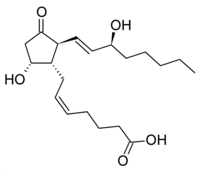
A
new study from France revealed that eating lots of animal protein appears to increase the risk of inflammatory bowel disease (IBD) in women. The study was conducted on 67,000 women in France over a long time period to find risk factors for different diseases, including cancer and other common illnesses. There are no conclusions that are being drawn from the study, but it does suggest that diet does potentially play a role in the disease.
An excerpt:
Women who consumed the most protein were at more than triple the risk of being diagnosed with IBD, the researchers found; animal protein accounted for most of the risk. Risk was specifically associated with high intake of meat and fish, but not with dairy products or eggs.
While experts have long suspected that diet might play a role in inflammatory bowel disease, Carbonnel and his colleagues note, the only links identified previously were with eating a lot of fats and certain kinds of sugars. Those studies were more prone to error than forward-looking or prospective studies like the current investigation. There have also been several studies linking vitamin D deficiency to IBD.
Another excerpt regarding the potential link to IBD:
Meat could contribute to inflammatory bowel disease risk because digestion of animal protein produces many potentially toxic "end products," such as hydrogen sulfide and ammonia, the researchers note. Also, Carbonnel pointed out, a high-protein diet could alter the mix of bacteria that live in the colon.
The article doesn't comment on it, but I would argue that there is potentially another possible causation here. The reasons suggested are that the high intake of proteins is either generating toxic end-products or causing dysbiosis of the bacterial mix. If that were the case, though, this type of correlation would be present with other types of animal protein sources, including dairy and eggs. But there was not. (As an aside, I would also expect that other food types - e.g. starches, sugars, etc. - also produce these types of toxic end-products as well). I think another alternative cause could be the bacteria present in meat and fish stocks. Contamination from these food sources (e.g. MAP), could also be an explanation. Hopefully that's a third alternative they'll do additional research on. Either way, interesting study.
 Saw an interesting article in the Wall Street Journal about a new drug being introduced by Novartis called fingolimod. The drug is used to suppress the immune system, treating some of the symptoms of multiple sclerosis. I'm generally not a big fan of immunosuppressants, but the article does suggest why many alternative therapies work.
Saw an interesting article in the Wall Street Journal about a new drug being introduced by Novartis called fingolimod. The drug is used to suppress the immune system, treating some of the symptoms of multiple sclerosis. I'm generally not a big fan of immunosuppressants, but the article does suggest why many alternative therapies work. Saw a really interesting
Saw a really interesting 
 I've thought for a while that TNF blockers and other immunosuppressive drugs may actually be counterproductive in the long-run in treating Crohn's Disease and IBD. The point of TNF-alpha in the immune system is to promote the fight against tumors (TNF = tumor necrosis factor). What happens if you suppress that immune response? Your body may be missing tumors that it should be fighting. A recent
I've thought for a while that TNF blockers and other immunosuppressive drugs may actually be counterproductive in the long-run in treating Crohn's Disease and IBD. The point of TNF-alpha in the immune system is to promote the fight against tumors (TNF = tumor necrosis factor). What happens if you suppress that immune response? Your body may be missing tumors that it should be fighting. A recent 

 Saw an
Saw an 

 A
A  Thought
Thought